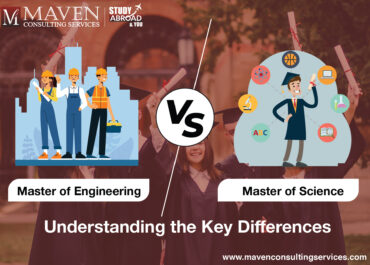Your Complete Guide to Mastering the ACT Exam for Studying Abroad

ACT is an admission test for students who are aspiring to study in the US or Canada. American College Testing determines your eligibility in reading, writing, science, and mathematics, the test is also a criteria to assess whether you can get into your desired institute or not. Not only does it save students from additional placement tests but It is also known to give students a better scholarship earning than other tests.
ACT and SAT or Scholastic Assessment Test are two of the most common tests accepted by institutes in the United States. The 2 hours 55 minutes long test lets colleges assess the credibility and academic performance of high school students.

The ACT exam is a critical milestone for a broad spectrum of high school students, catering to both those with immediate plans for college and those exploring alternative paths. Primarily, the ACT is indispensable for college-bound students.
The importance of the ACT extends beyond the traditional college-bound route. Even for
- students considering vocational or technical schools, or
- those entering the workforce directly after high school,
taking the ACT can be advantageous. Some employers recognize and value ACT scores as a measure of essential skills such as critical thinking, problem-solving, and analytical reasoning. Therefore, the ACT serves as a versatile tool for students navigating various educational and career pathways.
Additionally, taking the ACT during high school provides students with an early understanding of their academic strengths and weaknesses. This insight is valuable for making informed decisions about future coursework, career choices, and areas of personal development. In essence, the ACT is not solely for college-bound individuals; it is a valuable resource for any high school student seeking a comprehensive assessment of their readiness for the academic and professional challenges that lie ahead.

Beyond college admissions, the ACT offers a gateway to valuable scholarship opportunities. Many organizations and institutions award scholarships based on ACT performance, enabling students to alleviate the financial burden of higher education. In essence, taking the ACT is not just about meeting admission requirements; it’s a strategic investment in your educational future, opening doors to academic success, financial support, and personal development.
A strong ACT score not only enhances your application but also sets you apart from other candidates. It’s a better option for the fact that each of the questions in the ACT comes from a high school curriculum, so students that have freshly cleared their high school are almost already prepared for it.

ACT is divided into the following sections:
English: This section includes questions about rhetoric, mechanics, and grammar of the English Language. It assesses the comprehension and production of the language in writing form through sentences and passages.
Reading: The passages allow student’s comprehension to be assessed through prose, narrative and various other forms of texts.
Writing: This section is not necessarily included in all the tests, but is optional. It requires students to write a specific form of essay.
Science: Including earth science, biology, physics, chemistry, etc., the section assesses basic knowledge and grip on science subjects through questions, charts, and graphs.
Maths: Students can use a calculator for help throughout the test. Although 25% of the actual score depends on maths, It is divided into the following parts accordingly:
| Portion | Percentage of Test |
| Pre-Algebra | 25% |
| Elementary Algebra | 20% |
| Intermediate Algebra | 20% |
| Coordinate Geometry | 20% |
| Plane Geometry | 25% |
| Trigonometry | 10% |
Eligibility Criteria for ACT
Any aspirant with study abroad plans and a high school clearance can opt for the ACT, the eligibility criteria are not very strict. Some of the things to keep in mind are as follows:
| Age | Although there is no minimum or maximum age restriction, some of the institutes will allow you to take the test if you are 13 years of age. The undergraduate program that you are applying for might have an age restriction to adhere to. |
| Applications | Keep a check on application deadlines, and make sure to never miss one! |
| Registration | You will need to register on the official website of ACT through your passport or other eligible official docs. |
| Fee | You will need to pay $52 for the test without the writing section, if you want to opt for the optional writing test, your total fee would be $68. |
Prepare for ACT
To prepare well for your ACT exam, aspirants can integrate these steps into their schedule:
- Find out and understand the ACT exam syllabus and paper pattern
- Utilize authentic material given on official pages, or available easily to you. Such as sample questions, tests, and other resources given by the ACT organization
- Take a diagnostic test to identify your strengths and weaknesses, and work on them accordingly.
- Create a study schedule and cover ACT through revisions, focused practice, and full-length practice tests
- Students can even join a test prep course that can help them through expert guidance, online or in-person practice sessions, and peer support.
Conclusion
In conclusion, the decision to take the ACT is a strategic investment in one’s educational journey and future endeavors. Beyond its role as a gateway to college admissions, the ACT serves as a compass for personal and academic growth. By understanding the test format, identifying strengths and weaknesses, and adopting effective preparation strategies, students can navigate the ACT with confidence.
As students embark on the journey of ACT preparation, they not only enhance their test-taking skills but also gain valuable insights into their academic strengths and weaknesses. This self-awareness becomes a guiding force, shaping future educational choices and career trajectories.
In essence, the ACT is a multifaceted tool that empowers students, regardless of their chosen paths, with the skills and knowledge needed to succeed in the next chapter of their lives. Embrace the opportunity, prepare diligently, and let the ACT be a stepping stone toward a future filled with academic achievements and personal growth.
Don't forget to share this article










